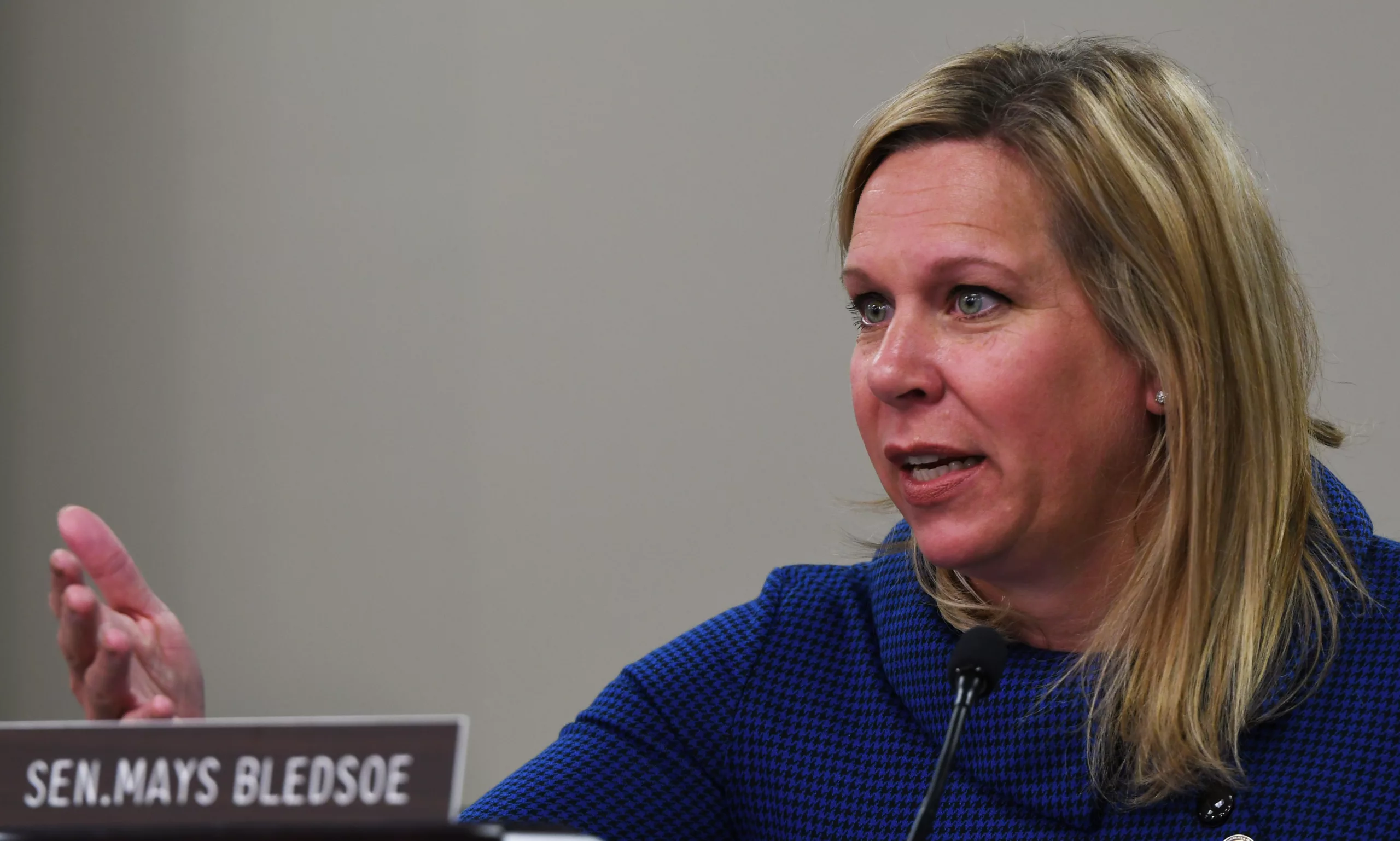Legislative committee discusses vaping issue, potential solutions

FRANKFORT — State and federal law prohibits tobacco sales to people under the age of 21, but student advocates say this isn’t enough.
Two student advocates and an internal medicine doctor testified on the issue before the Interim Joint Committee on Licensing, Occupations and Administrative Regulations on Monday. Information provided to lawmakers claims 23.6% of Kentucky kids reported buying nicotine products directly from stores.
Sydney Shaffer is an American Lung Association student advocate from Scott County. She and her co-presenters asked the committee to consider legislation to provide stricter enforcement of Kentucky’s tobacco laws pertaining to underage sales.
“We are here to ask you just for enforcement of the law that already exists to keep these kinds of products out of kids’ hands and have thorough, regular store checks and penalties for illegal sales practices, just like we have for alcohol,” Shaffer said.
She said vaping and e-cigarette marketing continues to target children.
“They are enticed with cool looking devices, cool sounding flavors and clever marketing – that is the bottom line – and they’re being fed high levels of nicotine,” Shaffer said, adding children and teens are getting addicted to these products quickly.
Griffin Nemeth told the committee Kentucky youth e-cigarette usage is getting higher. He is the youth advisory board coordinator for #iCANendthetrend at the University of Kentucky.
“This past year, the youth e-cigarette usage rate among Kentucky high schoolers has surpassed that of the national rate of adult cigarette usage,” Nemeth said.
Rep. Killian Timoney, R-Nicholasville, who is an educator, said vaping is “wildly out of control.” He asked what research says about parents’ knowledge of vaping.
Nemeth said many parents understand and are concerned when their child starts using e-cigarette products, but they struggle to help their children.
Sen. Amanda Mays Bledsoe, R-Lexington, said she’s seen the severity of the vaping issue firsthand as a mother. As co-chair of the Tobacco Settlement Agreement Fund Oversight Committee, Mays Bledsoe said there’s data showing peer-to-peer enforcement has been effective and asked if the advocates would like to see an expansion of those programs.
Expansion of anti-vaping advocates in schools is difficult, Nemeth said, but they would still like to see more advocates.
“We understand that there are advocates in the schools, like Sydney, but it’s hard to find adults who are willing to stand up to this issue or feel like they’ve seen it among youth or feel that youth are the problem,” Nemeth said. “We understand that youth are not the problem. It is the marketing they’ve been subjected to.”
In closing, committee co-chair Sen. John Schickel, R-Union, said he does believe that youth do have a choice when it comes to vaping.
“We need to realize that we all have a choice, kids and adults both, to choose what we want to participate in, and we have to take responsibility for those choices, not put them on other people to take responsibility for ourselves,” Schickel said.
During the interim, the Kentucky General Assembly cannot take any action on legislation. The 2024 legislative session begins Jan. 2.
The next Interim Joint Committee on Licensing, Occupations and Administrative Regulations meeting is currently scheduled for Nov. 9 at 11 a.m. For more information, visit legislature.ky.gov.
Photo: Sen. Amanda Mays Bledsoe, R-Lexington, speaking on the severity of vaping among Kentucky youth. (LRC Public Information)
Recommended Posts
New senior center in Lexington will serve a dual purpose
Sat, November 16, 2024
East Kentucky Power Cooperative makes plans for both new and converted natural gas plants
Fri, November 15, 2024

Wise and Mills gain Senate GOP roles in Republican caucus elections
Fri, November 15, 2024